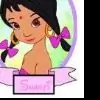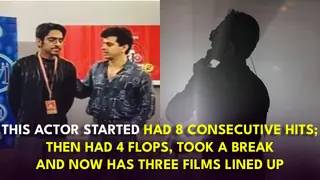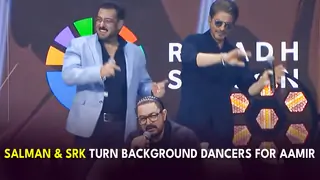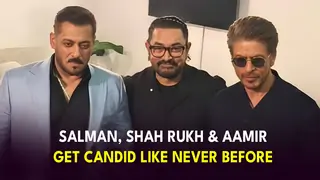Raees ~ Film Review
With more grit than a popcorn entertainer and more masala than a niche film, Raees is a film aimed at the masses and classes both, and for the most part it gets there. Hence, even as the historian me was not inspired to go and read more about prohibition era Gujarat, the film buff me walked away with a happily satisfied paisa wasool feeling.
Beginning in the '70's and spanning the decades into the '90s, this is the story of a young boy Raees Alam who outgrows his humble beginnings to establish an empire smuggling contraband. Raees is unapologetically a criminal, it's not personal it's about the dhandha is his rationale. What saves him from being a blacker than black villain, though, is his internal moral compass, however off it may be. Hence, while it is okay to break the law, incite and participate in riots, he is gutted when his nefarious activities inadvertently result in the death of innocents. For him then the only way to atone is to accept the responsibility. No matter the personal cost.
To sell a story based on the bootlegging mafia and ask audiences to invest in a bad guy as a mainstream hindi film hero is no mean task, but Rahul Dholakia and his writers take on the challenge and present Raees as a layered character. For ACP Majmudar Raees is a criminal who needs to be stopped ASAP. For Jairaj he is the ungrateful usurper on whom he orders a hit. But is Raees really the villain here? The residents of inner city Fatehpur would have a different story to tell, for them he is Robin Hood reincarnated. His bachpan ka dost Sadiq would describe Raees as a man of integrity. For his wife, Aasiya, Raees is a man who not only loves her but treats her with dignity and equality, a rarity in a time and place when women were meant to just be.
There are several points in this 155 minute film when commercial concerns and nave idealism override the inherent groundedness of the narrative but that's precisely where Shah Rukh Khan steps in and sells this character shortcomings n all. Raees Alam is as far from the Rahuls and Rajs as Switzerland and New York are from Fatehpur. With his purposeful gait, shoulders thrown back, the unruly beard, spectacles and heavily surma-ed eyes, splatters of blood on his face, this Shahrukh Khan is back in the zone of Baazigar, Darr and Anjam, but menacing in an entirely different manner. Conversely though, see him with Aasiya and he is all heart. Combined, these facets portray a complicated man, as unafraid of exposing his vulnerabilities, to his wife, as he is of shooting enemies point blank.
With three back to back out-of-the-box performances, Fan, Dear Zindagi and now Raees, one wonders how far Shah Rukh Khan the actor would've gone had he not gotten sidetracked along the way with Yash Chopra and Karan Johar's brand of film-making. The look on his face as he shoots his mentor Jairaj is brilliant!
But Raees is only half the story without accounting for ACP Jaideep Majmudar. Whether you see him as the villain or the hero Nawazuddin is brilliant, adding in his little quirks and relishing the one liners. Like Raees, Majmudar too suffers from writing lapses, but Nawazuddin makes the most of what he's given and we get a determined cop on a mission. Nawazuddin and Shah Rukh make a fabulous duo and their game of one upmanship anchors their vibe; there is a thrill in this chase, the hunter and the hunted both reveling in the resulting rush.
Amidst such powerhouse performances to contend with it is to Mahira Khan's credit that despite the unfortunate cuts her Aasiya leaves a mark. Though she falters in places, her Bollywood debut is marked with dignity and class as Aasiya offers a respite from all the grit and grime flying around. She looks stunning and makes a lovely pair with Shahrukh, they are magic together in the beautifully choreographed and performed Udi Udi Jaye. But Aasiya is not merely a showpiece.
In many ways Aasiya acts as Raees' conscience, often cleaning his specs offering him a clearer perspective on things that matter most. She is unafraid and perhaps the only one who dares question Raees. For a character that is not allowed its entitled space, there are quite a few scenes that make an impression: The phone banter between Raees and Aasiya, with Majmudar listening in, the scene where she is counting the money, a true raeeszadi who accepts her Raees for who he is, thus allowing him the space to lean on her when in times of crisis. Her "main vote laaongi" line is delivered with an iron-willed spine that belies her delicate frame.
Zeeshan Ayyub is quickly becoming one of my favorite actors and I wish he had more to do here than play the accommodating sidekick to Raees' larger than life character. That said, Sadiq's chemistry with bhaijaan is fabulous and on more than one occasion his presence serves to dissipate the intensity of an earlier dark scene. Atul Kulkarni is effective as the mentor turned rival Jairaj and so is Narendra Jha as Raees' friend turned foe Musa.
While I bought into Raees as a great entertainer with great acting, and I will probably go back again,
intellectually I was disappointed. Rahul Dholakia's Parzania is a film I assign undergrads when teaching my Contemporary South Asia history course. Exquisitely nuanced, it is one of the best films on the Gujarat riots. Clearly Dholakia knows his story and setting very well when it comes to telling a story like Raees. But where Parzania touches the heart and mind, Raees falls short of the standard set by his own earlier work.
Dholakia's impulse to make a potboiler undercuts the honest storytelling, doing away with the grit of the narrative, sanitizing and glamorizing in order to make it palatable to the masses, all of which affect the final product. Add to this the political shenanigans and we are left with a film riddled with continuity issues and a patchy narrative.
What does work are the memorable applause worthy lines, the attention to detailing and the efforts to create an authentic atmosphere. The editing of certain sequences: the meat market fight, the Muharram procession, the nicely utilized, very catchy Sunny Leone song. The dark undertones of the sequence when Raees sets off to kill his father figure right after he learns he's going to becoming a father are a reminder of the untapped potential. Infact, the very premise of the story, set in '80s -'90's Gujarat in a wholly Muslim setting is left completely untouched. But then again in light of recent happenings can one blame filmmakers for taking the safe route? Raees may believe otherwise but these days dharam se bara koi dhanda nahin hota ...
Written by SZ~
























100